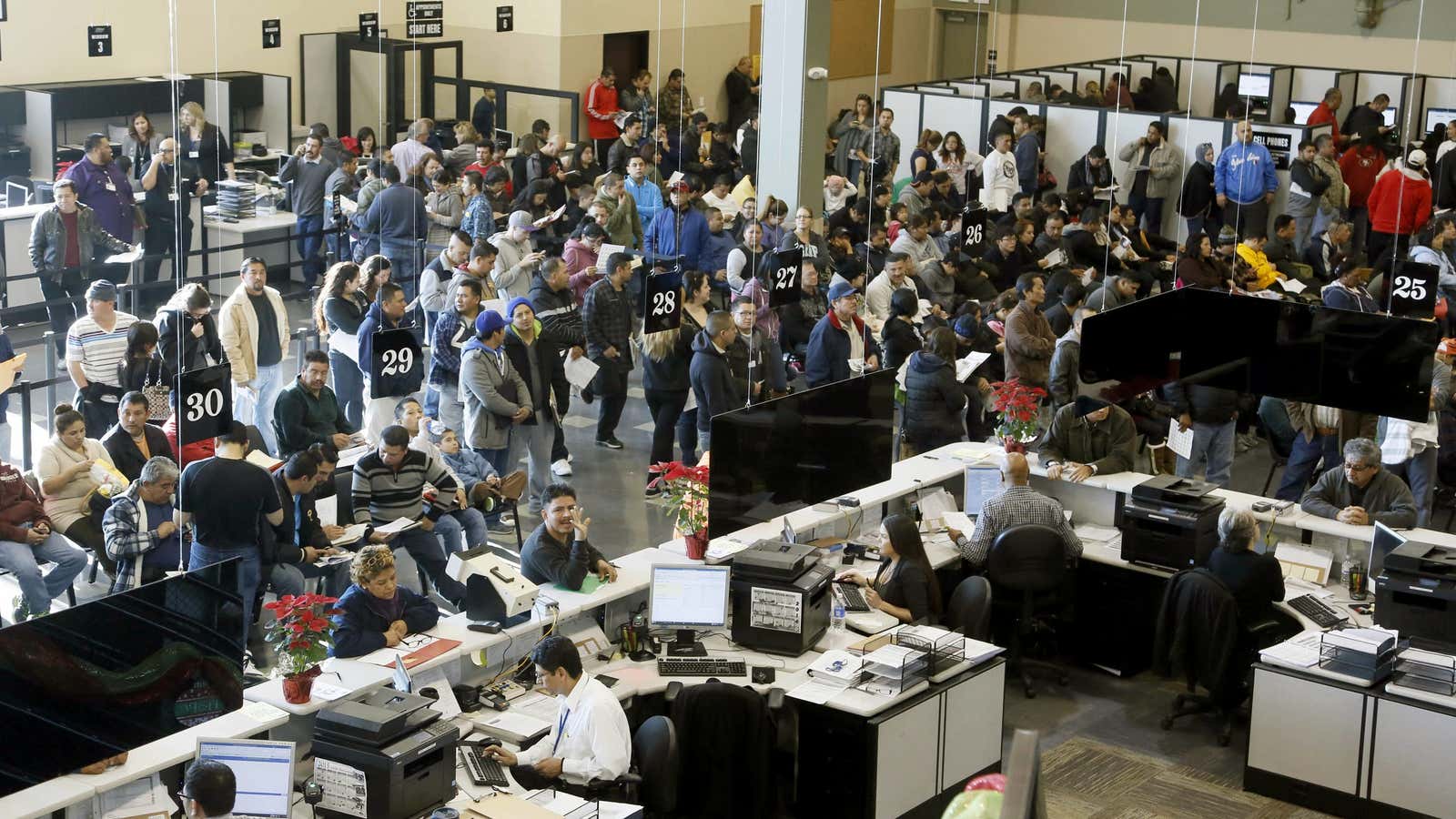Advocates on both sides of the US immigration debate have been fighting over whether it’s a good idea to allow people living in the United States illegally access to driver’s licenses.
But from a safety perspective, the answer to that question seems to be yes, according to a new study published April 3 in the journal PNAS. The study, conducted by Stanford University researchers, looked at the effects of a California law that allows undocumented immigrants to apply for licenses. Assembly Bill 60 or AB60, as the law is called, was implemented in 2015 and has so far granted some 850,000 undocumented people legal permission to drive, according to the state’s Department of Motor Vehicles.
Most US states require driver-license applicants to submit a valid social security number and proof they are in the country legally. This makes it impossible for undocumented immigrants to obtain one. AB60 opponents had argued that the bill would lead to more accidents because undocumented immigrants allegedly drive older, less reliable cars and can’t read road signs in English, per the study. Opponents also predicted that undocumented immigrants would be more likely to flee crash scenes.
But those assumptions are not supported by the Stanford research. While opponents had assumed that AB60 would add new drivers, the study concluded that most of the undocumented immigrants granted licenses had already been driving—albeit illegally. And practically speaking, the law had no noticeable effect on traffic accidents or fatalities. “The majority of new license holders had sufficient driving experience, and obtaining a driver’s license did not change their routine driving behavior,” the authors wrote.
However, AB60 did have a significant impact on hit-and-runs: it reduced their rates.
Before AB60, illegal drivers in California had an incentive to leave a crash scene. If they stayed, they could be arrested and deported, or have their car impounded. Now that they have a license—and the state’s assurance that police officers won’t question them about their immigration status—they are less likely to be afraid.
California’s driver license policy is in part a response to Congress’s inability to decide what to do about the approximately 11 million people who live in the country illegally. While US senators and representatives bicker, state and local authorities have been forced to deal with the gnarly problems that arise when their residents don’t have official permission to carry out basic tasks, such as driving.
The study’s conclusions also suggest that undocumented drivers had already been following other rules, such as registering their vehicles.
The authors point to several benefits of AB60-style laws, which several other states have recently implemented as well. Accident victims can get medical help more quickly if everyone remains at the scene. In addition, when at-fault drivers stay, they can take responsibility for the damage. This reduces insurance premiums for everyone.
Although not part of the study, the Stanford researchers also suggest that being able to legally drive could improve workers’ earnings, and the local economy. Overall, options like AB60 appear to offer short-term yet practical solutions for the kinds of problems that will likely not be settled for a long time.
